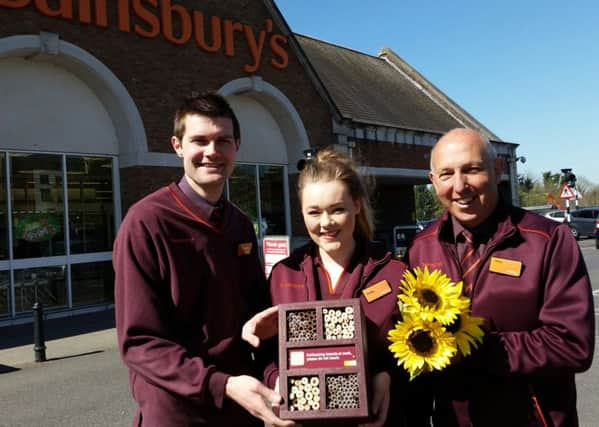Buzz for Sainsbury’s as they receive Bee Hotel


The solitary bee, the less famous cousin of the honey bee is most easily identified being the red mason bee.
The benefits of using these hard-working pollinators is that in an industrial greenhouse a number of colonies can work for a whole season alongside the people picking and tending the crop without any fear of stinging.
Advertisement
Hide AdAdvertisement
Hide AdThe result for the grower is an abundance of grade “A” quality fruit and vegetables that meet the supermarkets’ high standards.
Other benefits we have identified are an increased turnover for the grower with minimal extra input resulting in an increase in shelf life for the crop without further preserving treatments, and as the farmers know, the better the pollination, the straighter the cucumber!
The Solitary bee population has dropped over the last decades due to farming styles. Taking out the hedges and field boundaries leaves them nowhere to nest, and grants to replace the old falling down wooden shed in the corner of the yard with a new metal clad building denies the bees any opportunity of boring holes to lay their eggs.
Sainsbury’s have started to install “bee hotels” which enable bees to better survive the winter.
Advertisement
Hide AdAdvertisement
Hide AdThey are installed, far enough away from the store so there is no interference with customers or the bees. Dursley, Gloucestershire was the first store to have “bee hotels”, a 1st for a UK supermarket.
We currently have over 150 bee hotels in suitable stores across our estate, that are looked after by our resident bee keeper. The “bee hotels” are made from sustainably sourced timber and recycled materials.
Report and picture contributed by Sainsbury’s Horsham.